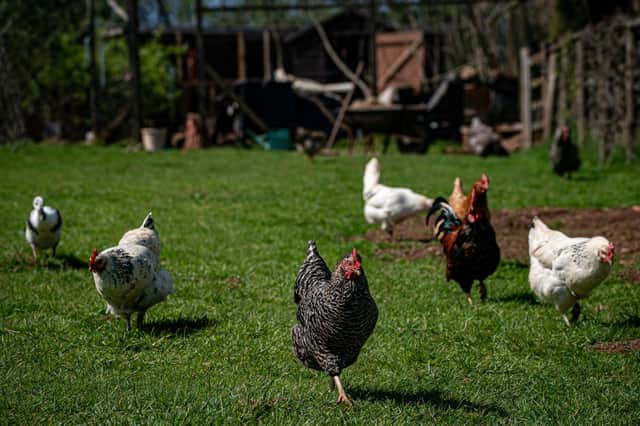Local farmers 'cannot absorb costs' of regulatory divergence between GB and Northern Ireland - UFU


The European Union has applied stricter standards to organic egg production – which puts Northern Irish producers at a competitive disadvantage in the market in the rest of the UK – according to the Ulster Farmers Union.
In evidence submitted to the Foreign Secretary Lord Cameron by the Lords Sub-Committee on The Windsor Framework – the UFU says costs “cannot be absorbed by the NI industry”.
Advertisement
Hide AdAdvertisement
Hide AdGB organic legislation is currently under review, with no publication likely until the end of 2025. Until then, GB farmers will continue to produce organic egg according to retained legislation.
The UFU say the current divergence allows organic egg farmers in Great Britain to produce eggs more cheaply than their Northern Irish counterparts – at around 5 pence less per egg. They say a derogation, which was in place until the end of February, should be extended until after the publication of GB’s revised organic legislation.
Under the DUP’s Safeguarding the Union deal with the government – Northern Ireland goods are guaranteed “unfettered access for all routes into Great Britain” - avoiding "declarations, checks or controls, whether goods are moved directly or indirectly”.
What this doesn’t prevent is divergence in terms of standards – and the subsequent impact on industry – as Northern Ireland remains in the EU single market for goods.
Advertisement
Hide AdAdvertisement
Hide AdOne of the impacts in divergence in product standards is the cost to business. A Northern Ireland egg producer would still be able to sell their product into Great Britain, but the divergence in standards means it would be less financially viable to do so.
The UFU gave evidence to the Westminster committee that they had become “aware of a disparity relating to organic egg feed regulations in EU vs UK for diets fed to ‘young birds’”.
They said “The differential was a requirement that feed rations produced should contain 100% organic ingredients as per EU regulations, rather than UK regulations which were formulated to 95% organic ingredient inclusion. Concerns were raised at that stage around nutritional stability of the diets, detrimental effect on egg yolk colour, as well as a cost disparity with GB producers”.
The UFU says 14% of the organic eggs sold in GB are sourced in NI. 250,000 eggs are produced from 35 farms in NI on a daily basis.
Comment Guidelines
National World encourages reader discussion on our stories. User feedback, insights and back-and-forth exchanges add a rich layer of context to reporting. Please review our Community Guidelines before commenting.